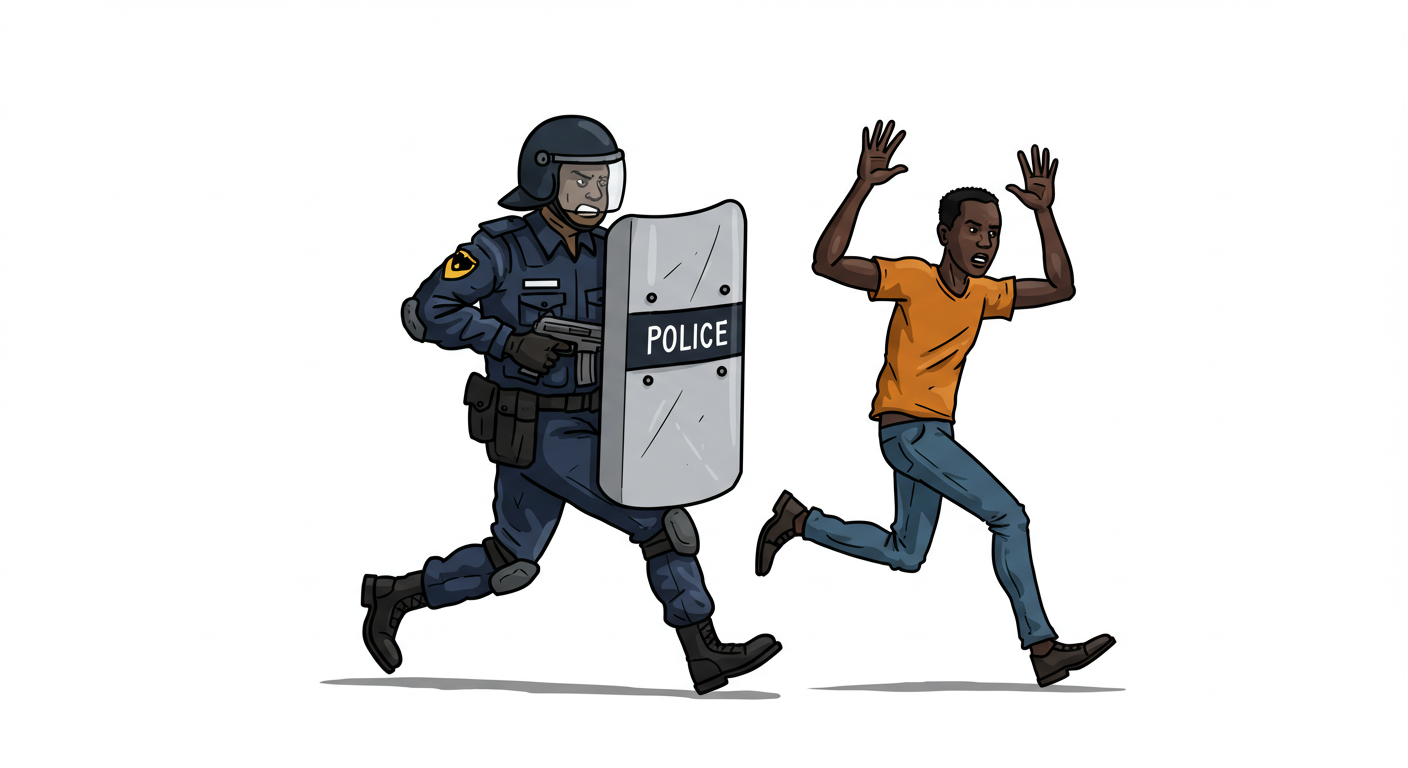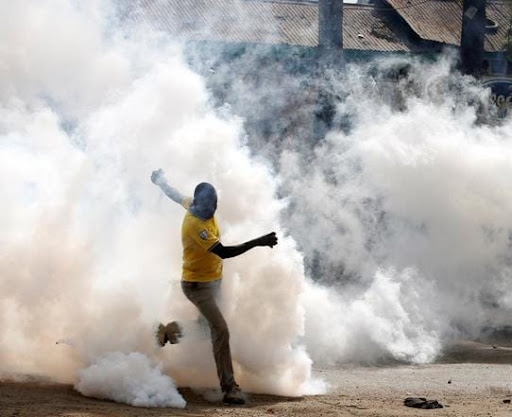
ART CHECK: Shoe as symbol of political resistance
It invites creativity in the performance of protest
One read: If they shoot me tomorrow, tell mum I did my best
In Summary

Audio By Vocalize

But these were no ordinary death announcements. They were written by the living. The authors were young Kenyans, mostly Gen Z, who anticipated they might not return from anti-government protests, Maandamano. With tear gas in the air and bullets never far away, many of them chose to speak, or rather write, as though they had already died. The documentation on police brutality and the use of force against these youthful dissidents to contain the protests is now a burning topic in Kenya.
“In case they shoot me tomorrow, read this aloud to my mum and dad, tell them I did my best,” wrote one youth, a 26-year-old mechanical engineer, DJ and activist.
His self-penned eulogy went viral. It was powerful, poetic, chilling and alive. This act of writing a tribute to oneself before death happens is what we may call a “self-eulogy”. It is a weird genre of writing that qualifies as an artistic, philosophical and political phenomenon deserving our deepest thoughts.
I propose that a self-eulogy is a personal obituary written while the writer is still alive. But it goes beyond dramatic flair and dictional aplomb. It is protest, poetry, fear and resistance rolled into one.
These digital eulogies, shared through X (formerly Twitter), TikTok and Instagram mainly, became expressions of grief not for the dead but for the living, who might not survive the next protest. They combine humour, sadness, sarcasm and hope. They look death in the face and speak to it with daredevil boldness.
Our Gen Zs are not new to disappointment. Many of them face unemployment, rising costs of living, broken promises by the government and police violence.
Last year, a number of youths lost their lives during protests against the Finance Bill. By 2025, it was clear to many that the state appears to treat the young protesters as disposable.
But these young people are not going quietly. Instead, they’re using satire, irony and digital artistry to speak against death before it arrives. They are writing as if they have died, not because they want to die but because they refuse to be forgotten. In this way, the self-eulogy becomes a new political weapon. Think of it as a scriptural and digital cry from the edge of life.
The great French philosopher Jacques Derrida reminds us that death is never truly present. It is something we imagine, fear or anticipate. Yet we never experience directly. In his book Aporias, he writes that, “One does not experience one’s own death.”
So, when Gen Zs write eulogies while still alive, they are playing with this idea: writing death without dying. They are both mocking death and mourning themselves in advance. They are alive though already ghosted by the state.
This kind of protest is not about giving up. It is about refusing to vanish silently. These young people are saying: “If I must die, I will narrate my death in my own words, not through a news headline or government statement.”
At first glance, some might call these self-eulogies tasteless or even morbid. Parents and pundits have expressed discomfort. But the use of dark humour here is crucial. As Sigmund Freud once said, jokes allow people to release repressed pain. These eulogies are both death wishes and liberation songs, born in fear and voiced in defiance.
Derrida introduces a powerful concept called hauntology. It is simply a way of thinking where presence and absence blur. The Gen Z self-eulogies of last week fit this perfectly. These are writings by people who are not dead but are treated as though their deaths are possible at any moment. They are haunting society before they die.
This spectral presence unsettles both the state and society. The young protesters are demanding better lives. They are marking their existence before the system can erase them. They are writing themselves into history in case history forgets them.
To fully understand this phenomenon, we must also explore the idea of body politics. The youth, in writing their deaths, are making their bodies visible. In a country where young protesters can be beaten or shot without consequence, to write a self-eulogy is to say, “This body matters. This life matters. This name matters.”
Philosopher Achille Mbembe calls this necropolitics or the power of the state to decide who lives and who dies. In writing their own eulogies, our youth take back control of the narrative. The state may claim their lives, but not their narratives. The eulogy becomes a reclaiming of authorship.

It invites creativity in the performance of protest

It awakens citizens and forces leaders to pause, look within